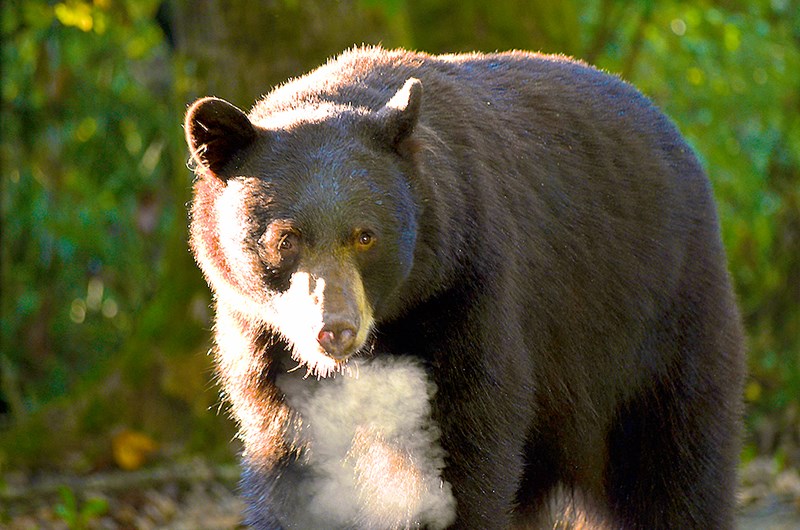B.C.'s Conservation Officer Service is calling on Port Coquitlam, Coquitlam and Port Moody to do more enforcement and education to reduce the number of wildlife conflicts involving bears.
The call comes as the four conservation officers responsible for enforcing the Wildlife Act in forests and urban areas from Mission to Burnaby, including the Tri-Cities, are dealing with a heavy volume of bear conflict complaints.
And while the three cities have bylaws, staff and fines to deal with garbage scofflaws, more needs to be done, said the CO service's Sgt. Todd Hunter.
"I can't get to all of the calls, when the issues are predominately with residential food waste," Hunter said.
He wants to see the cities work on a strategy to crack down on garbage and attractant issues — including stopping businesses and stratas from leaving commercial waste bins open — and on Wednesday, Hunter appeared before the PoCo community safety committee, the first of what he hopes will be three city council visits.
"How bad does it have to get, we need a strategy to make sure I can provide the service," said Hunter said.
FIVE BEARS DESTROYED
In Coquitlam and Port Coquitlam alone, five bears were killed this summer, two of them extremely large bears, weighing in at 500 pounds each, that were causing damage to property in Port Coquitlam.
PoCo's community safety committee chair Coun. Darrell Penner agrees more enforcement could be done to prevent bears from getting at food waste or other attractants.
"The enforcement part about garbage is our bailiwick," agrees Penner, but he said the city has already given out bin locks to homes in bear prone areas and enforced waste bylaws.
He was, however, surprised to see conservation officer photos that showed residential garbage set out at 2 a.m. in Riverwood Gate.
"There's pretty straight forward information and we can react to that," Penner said, adding that the city is hoping to get more frequent updates from the Environment Ministry on bear complaints so bylaw officers can act.
However, he doesn't want PoCo to take on a load that should be the responsibility of the conservation officer service and the province.
"My criticism to the province is that they have no plan to deal with bears, it's always reactionary," Penner said.
NEW PROBLEM
Most bear conflict issues have arisen in the last eight years, Penner said, and while PoCo is densifying, most of that new housing is infill not in wooded areas, as is the case in nearby Coquitlam.
But he does agree that more awareness is necessary because people don't seem to realize that even if an attractant is left out once, bears will still return, hoping for a meal.
"This is the part I think people don't really get in their heads," Penner said. "It takes a long time to untrain [bears]." In fact, they never lose a taste for garbage.
Neighbourhood fruit trees can also be a problem and bears will keep returning to that spot.
Coquitlam had the most bear complaints this summer but PoCo had some of the more high profile situations, including one incident where a PoCo teen reportedly stabbed a bear after it appeared to jump on his dog.
Hunter said that incident hasn't been concluded and no injured bear matching the description was ever found, but he is concerned that with warmer summers and development changing bear habitat more conflict issues will arise, with safety as a top concern.
And, with so many bear conflict issues arising, conservation officers won't be able to do their other important jobs, such as stopping elk, bear and sturgeon poaching, Hunter said, noting that he's not trying to lay blame but to get cooperation because bears don't stay in one place, they move between municipal jurisdictions.
"We need to do something to get a strategy in place and keep them [bears and human wildlife conflicts] at a manageable level."



